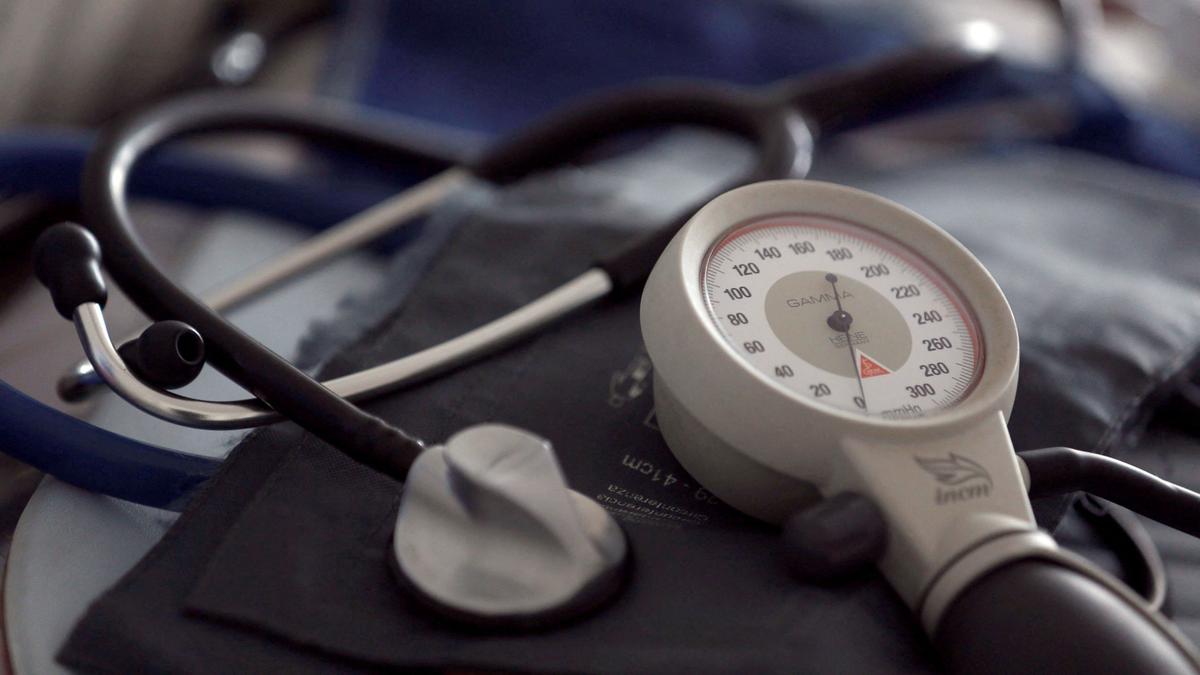Science
Discover Essential Facts About Blood Pressure Levels

Understanding blood pressure is crucial for maintaining overall health. While many people recognize the ideal reading of 120/80 mm Hg, few understand the broader implications of blood pressure management. This article explores essential facts about blood pressure, its significance, and how it can impact well-being.
What is Blood Pressure?
Blood pressure measures the force of blood against the walls of arteries as the heart pumps. It consists of two readings: systolic pressure, which occurs during heartbeats, and diastolic pressure, which occurs when the heart rests between beats. A reading of 120/80 mm Hg is considered normal, while values above this threshold can indicate various health risks.
According to the American Heart Association, blood pressure is categorized into several ranges: normal, elevated, and hypertension. Elevated blood pressure is defined as a reading between 120-129/80 mm Hg, while hypertension is classified into two stages:
– Stage 1: 130-139/80-89 mm Hg
– Stage 2: ≥ 140/90 mm Hg
Monitoring blood pressure is essential, as hypertension affects nearly 1.3 billion people globally, according to the World Health Organization. If left unmanaged, hypertension can lead to severe health issues, including heart disease and stroke.
Importance of Regular Monitoring
Regular blood pressure monitoring is vital for early detection and management of hypertension. Health authorities, such as Health Canada, recommend that adults have their blood pressure checked at least once every two years. Individuals with risk factors, such as obesity, diabetes, or a family history of hypertension, should consider more frequent evaluations.
Lifestyle modifications can significantly lower blood pressure levels. These include maintaining a balanced diet rich in fruits and vegetables, reducing sodium intake, engaging in regular physical activity, and avoiding tobacco products. Studies show that even modest weight loss can lead to meaningful reductions in blood pressure.
In addition to lifestyle changes, healthcare providers may prescribe medications to help control blood pressure. Common classes of antihypertensive drugs include diuretics, ACE inhibitors, and beta-blockers. Adherence to prescribed treatment is critical for managing hypertension effectively.
Public health campaigns aim to raise awareness about blood pressure management. Organizations like the American Heart Association and the World Health Organization regularly provide resources and education on how to maintain a healthy blood pressure.
In conclusion, understanding blood pressure is fundamental for individuals looking to improve their health. Recognizing the numbers and taking proactive steps can make a significant difference in preventing serious health complications. Regular monitoring, lifestyle changes, and medical intervention where necessary are all critical components of effective blood pressure management. By prioritizing these actions, individuals can contribute to their long-term health and well-being.
-

 World5 months ago
World5 months agoSBI Announces QIP Floor Price at ₹811.05 Per Share
-

 Lifestyle5 months ago
Lifestyle5 months agoCept Unveils ₹3.1 Crore Urban Mobility Plan for Sustainable Growth
-

 Science4 months ago
Science4 months agoNew Blood Group Discovered in South Indian Woman at Rotary Centre
-

 World5 months ago
World5 months agoTorrential Rains Cause Flash Flooding in New York and New Jersey
-

 Top Stories5 months ago
Top Stories5 months agoKonkani Cultural Organisation to Host Pearl Jubilee in Abu Dhabi
-

 Sports4 months ago
Sports4 months agoBroad Advocates for Bowling Change Ahead of Final Test Against India
-

 Science5 months ago
Science5 months agoNothing Headphone 1 Review: A Bold Contender in Audio Design
-

 Top Stories5 months ago
Top Stories5 months agoAir India Crash Investigation Highlights Boeing Fuel Switch Concerns
-

 Business5 months ago
Business5 months agoIndian Stock Market Rebounds: Sensex and Nifty Rise After Four-Day Decline
-

 Sports4 months ago
Sports4 months agoCristian Totti Retires at 19: Pressure of Fame Takes Toll
-

 Politics5 months ago
Politics5 months agoAbandoned Doberman Finds New Home After Journey to Prague
-

 Top Stories5 months ago
Top Stories5 months agoPatna Bank Manager Abhishek Varun Found Dead in Well









